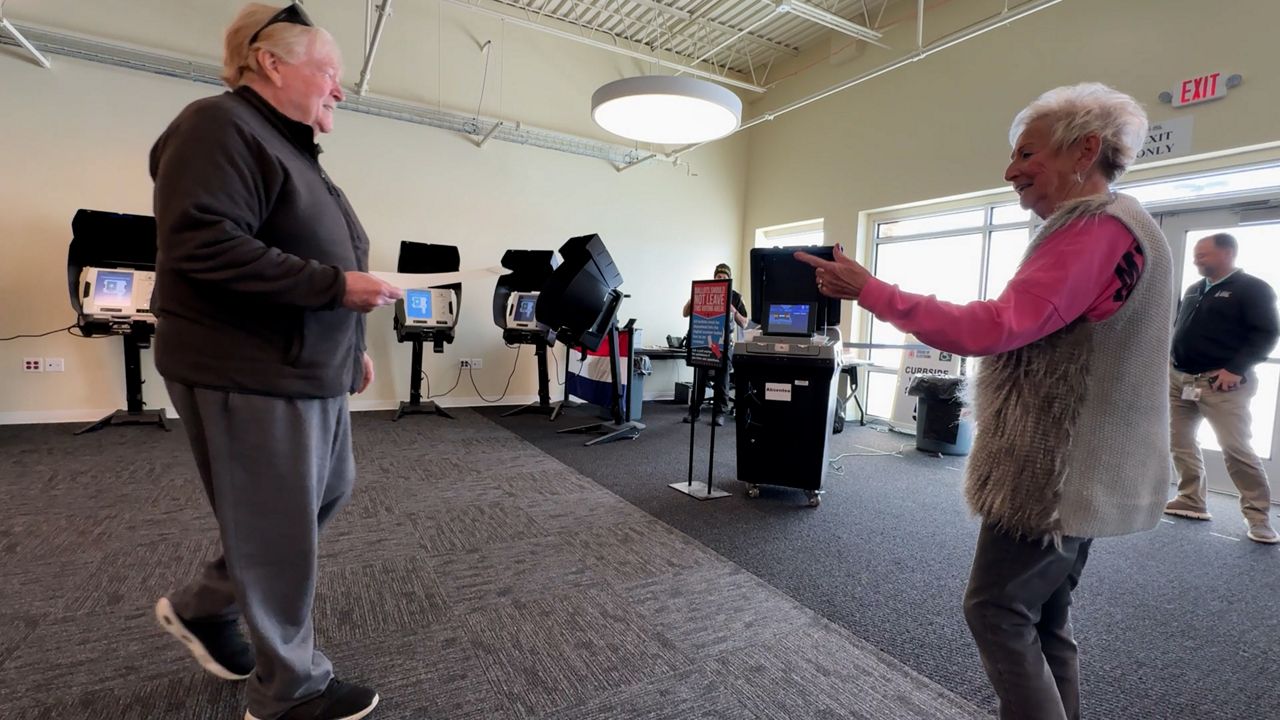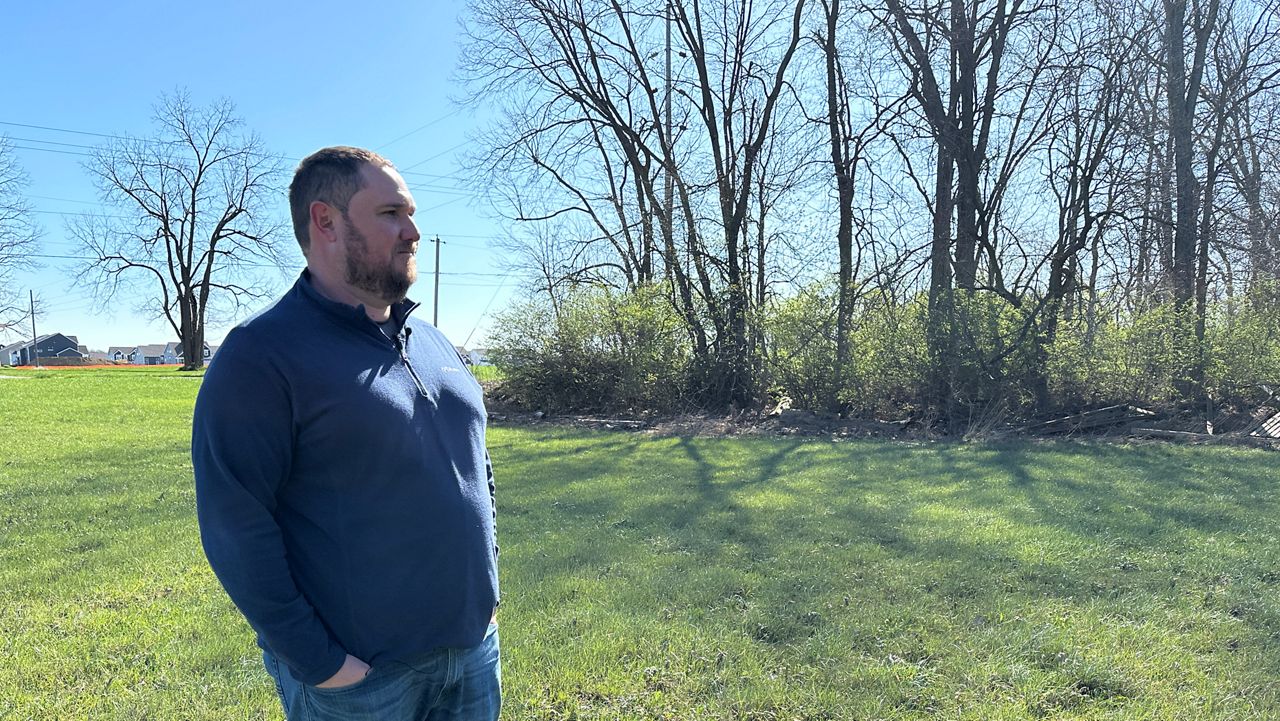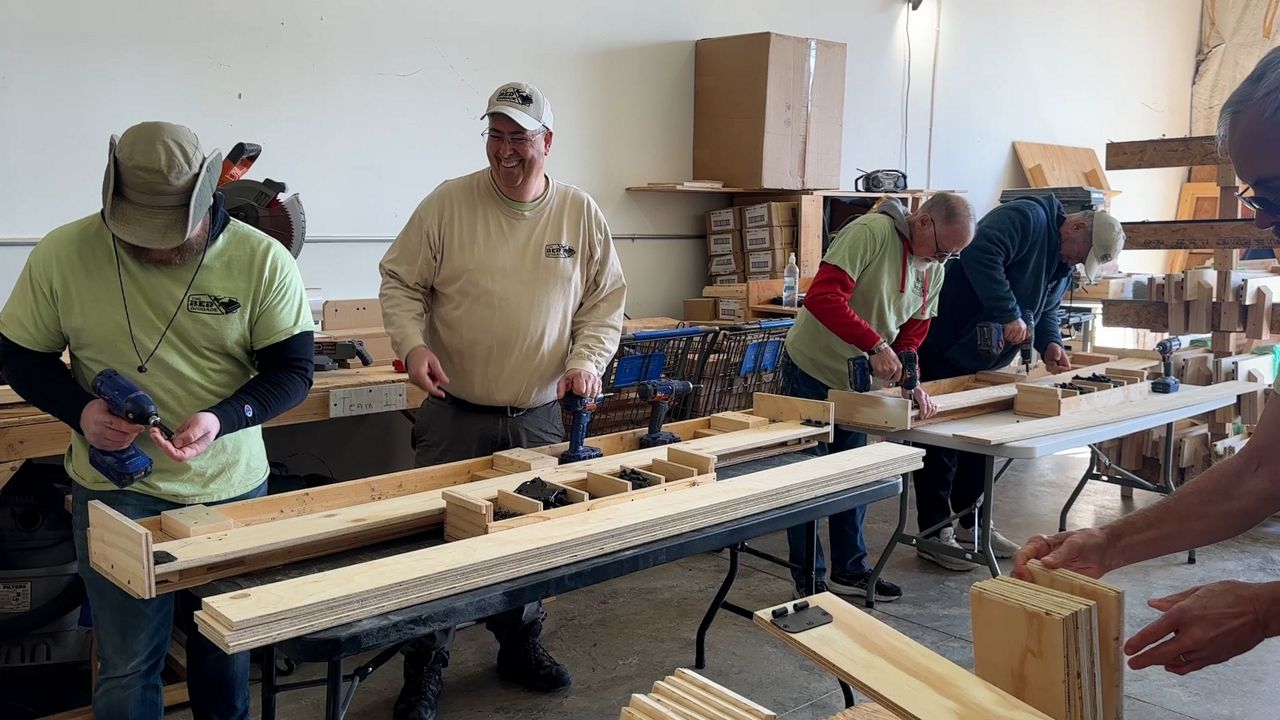ASHLAND, Ohio — At 44 years old, Stephanie Dellinger couldn't be happier with the job she has and some of the relationships she’s built in her life. But her journey to where she is now has been anything but conventional.
In 2010, when she was in her early 30s, she had a colon resection and became addicted to prescription opiates. It snowballed into an addiction to heroin. She began stealing, all to feed her addiction.
“I stole from a stranger to try to steal some guns — I tried to steal 32 guns, and stole from my grandmother. So yes, I was charged with, I have six felonies,” said Dellinger.
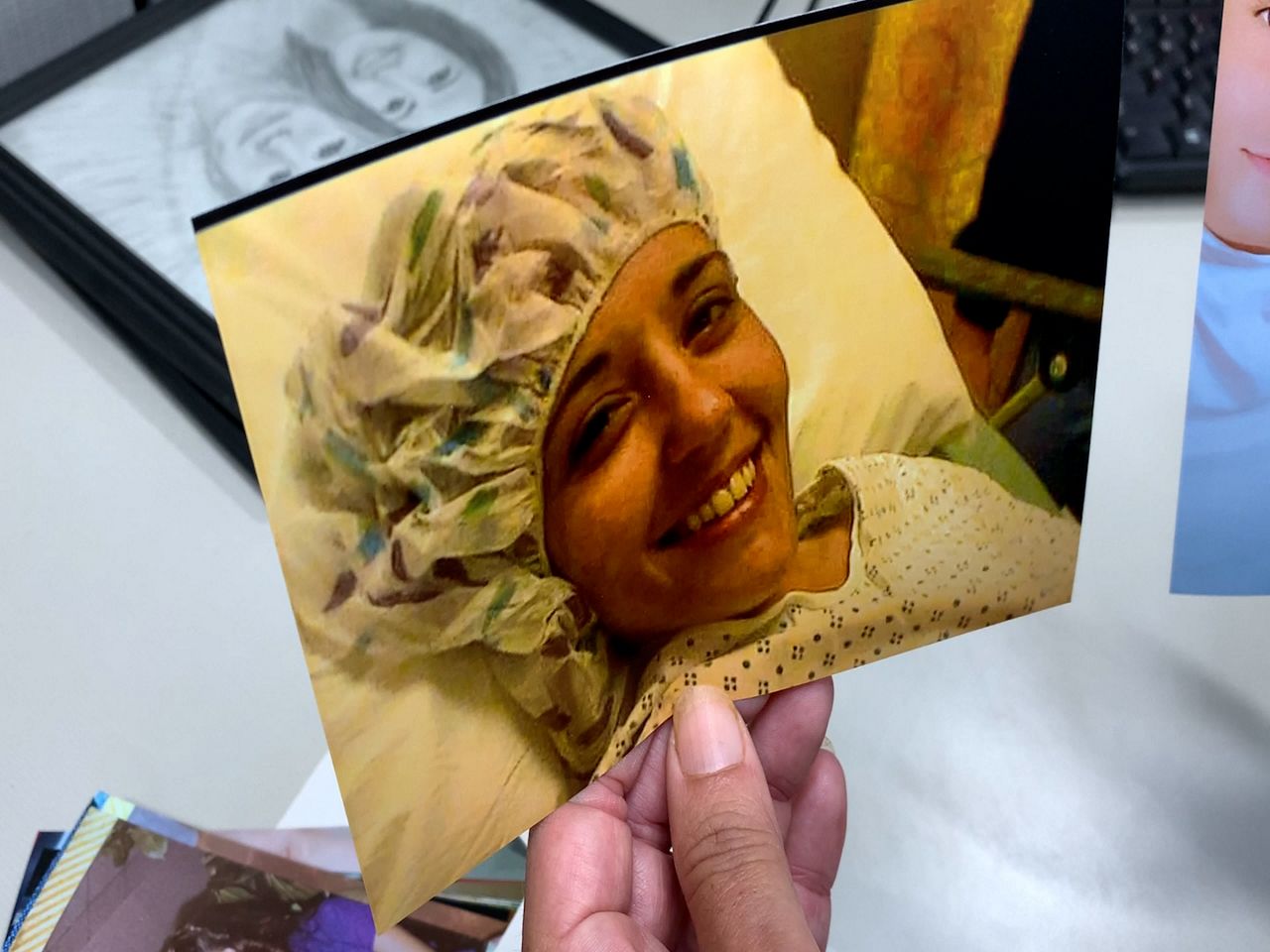
She went to prison in 2013.
“I'm not proud of who I was and what I became,” said Dellinger.
She said it took the first two years of her sentence to get her mind right.
“Your mind gets so convoluted with the drugs and everything that your thinking is so way off. It's just, it's crazy,” said Dellinger.
Once she began thinking clearly, she began to start taking responsibility.
“From that point on, I just was very motivated that this will never be me again,” said Dellinger.
She utilized every resource she could while in prison to become a better person. She received many certificates, facilitated meetings, joined groups and took more college courses.
"I did everything I could and if that meant I had to be in somebody's face to try to get resources to do something better for myself so I would not end up back here, I did it. I became very selfish in that respect at that point," said Dellinger.
She got out in 2016 and now is using her second chance to help others. As the site director for Ashland University’s Correctional Education Program, she works with inmates who want to graduate college at the Mansfield Correctional Institution.
“This is not just my job,” said Dellinger. “It's a complete passion. I love what I do, love it.”
Ashland University’s Correctional Education Program is the largest in the nation. It serves 124 prisons in more than a dozen states.
There are more than 100 colleges and universities in Ohio, but only about five that have a correctional education program. Ashland University partners with jails and prisons to positively influence the lives of students in the correctional environment. In Ohio, Ashland University offers its program in 14 facilities.
Studies have shown that getting an education while in prison reduces the recidivism rate.
According to RAND, a nonprofit institution that helps improve policy and decision making through research and analysis, more than 700,000 incarcerated individuals leave federal and state prisons each year and within three years of release, 40% will have committed new crimes or violated the terms of their release and be reincarcerated.
RAND found that inmates participating in correctional education programs were 28% less likely to recidivate when compared with inmates who did not participate in correctional education programs. Northwestern University’s Prison Education program states that number could even go beyond 43% for prisoners who participate in prison education programs.
Those statistics are a main motivator for Dellinger.
“Why are we the Ohio Department of Rehabilitation of Corrections if we're not going to give chances to rehabilitate people?” said Dellinger. “Well, you also have to give them the tools to rehabilitate so you can't lock somebody up in a prison with nothing, no kind of programming, no anything all day. What's that going to create? You're going to get somebody even worse than when they went in. You have to have programming.”
In Ashland University’s Correctional Education Program, Dellinger is the liaison between the university and the students.
“I like to say guidance counselor,” said Dellinger. “Anything that guys would need I provide to them. So their books, their devices, to do their work on any kind of paperwork, resources. I do their enrollment, I'll do their financial aid paperwork with them, I do a little bit of everything.”
She’s also a mentor to those who want to change their life for the better.
People like Kevin Harris who recently got out of prison for the third time for drug-related crimes. His last sentence was 14 and a half years.
“I think Ashland offers that opportunity to just get the doors open, you know, so people can really see that I can be somebody, I can be successful. I can change,” said Harris. “One of the most important things for us to get better is to have a mentor. So you know, someone that's in a position where we want to be to kind of show us the way.”
For 10 years of his sentence, he tutored other incarcerated students. Now, he’s only three classes away from earning his associate's degree. He has a job at a homeless shelter and hopes to get his bachelor's degree next. He knows that even though sometimes you have to crawl before you can walk when you get out of prison, more opportunities have arisen because he went to school.
“I would not be where I'm at today without Ashland,” said Harris. “They didn't look at me as a number or as an inmate, they looked at me as a person. And they looked right through here, right into my eyes and said, you can do something different. You can be better. And I chose that. And also I chose to help others do the same thing.”
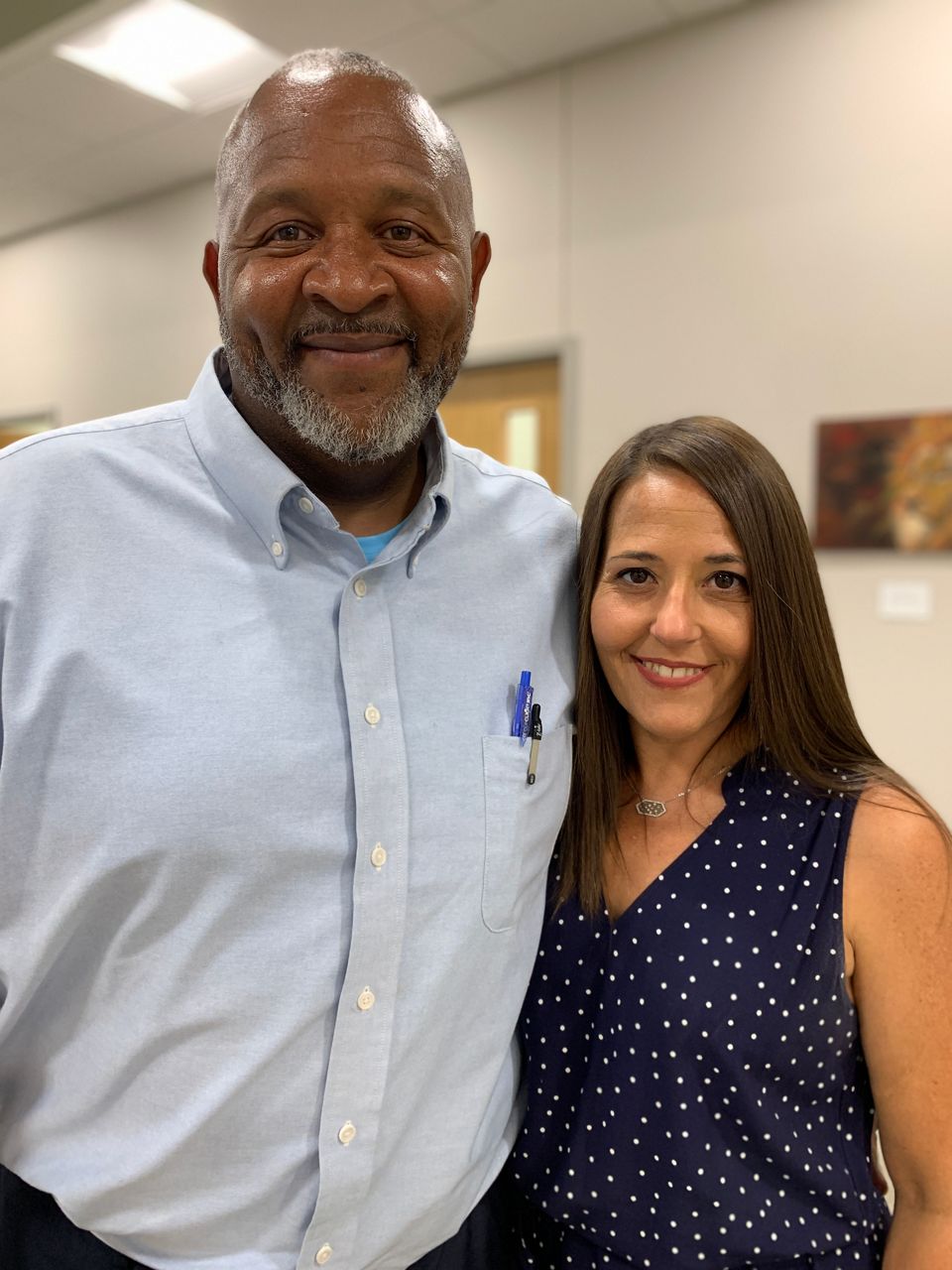
Dellinger and Harris are prime examples of how your past doesn't have to control your present.
“If you go to school, you're expanding your mind,” said Harris. “You're expanding your opportunities. Don't let this particular mistake define who you are or hold you back from everything. What you do today determines your future for tomorrow.”
They’ve hit a few potholes in the road on their life’s journey, but it’s their journey, and now they’re embracing it to the fullest.
“I am proud of who I am now, and this helped me be the woman that I am right now,” said Dellinger.
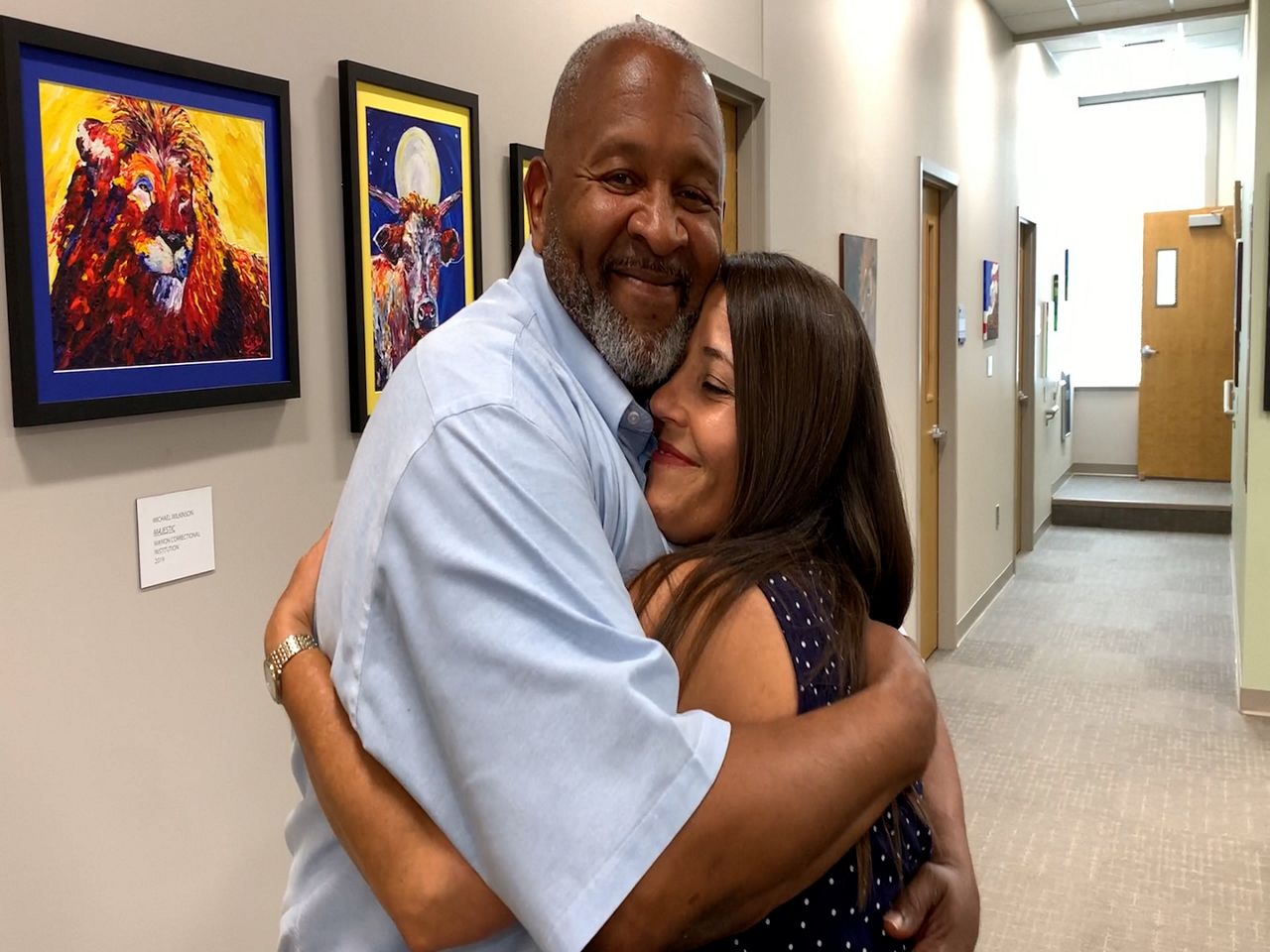
For more information on Ashland University's Correctional Education Program visit here.








